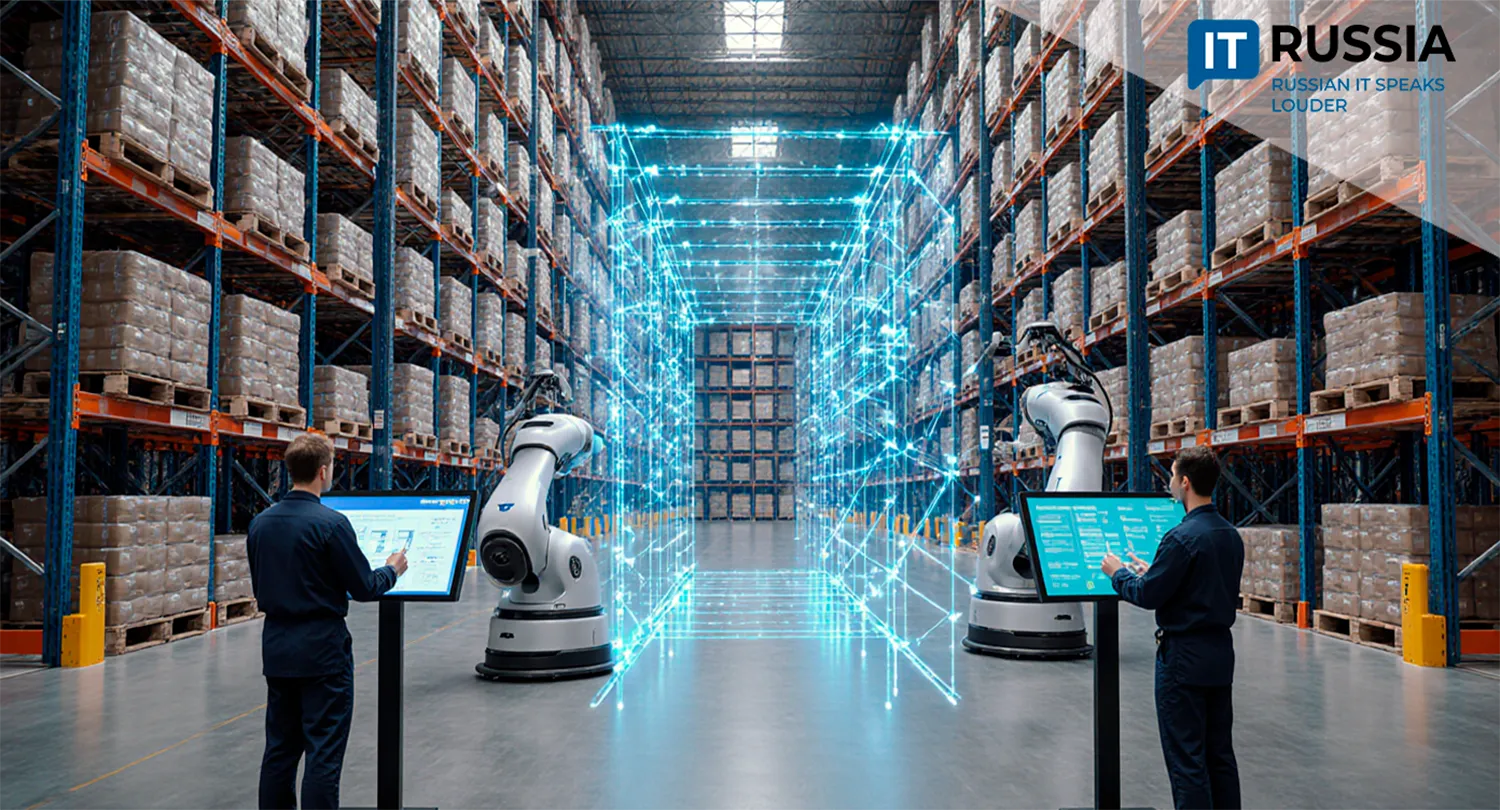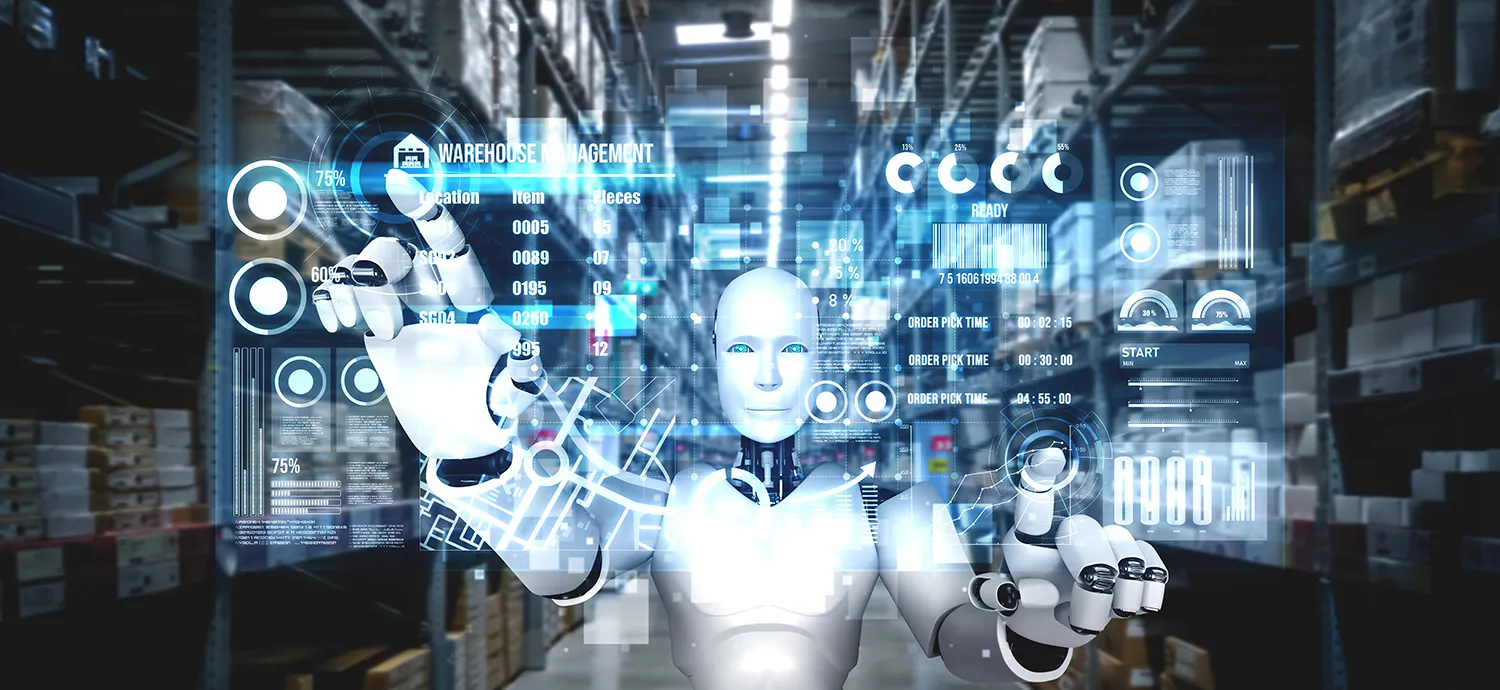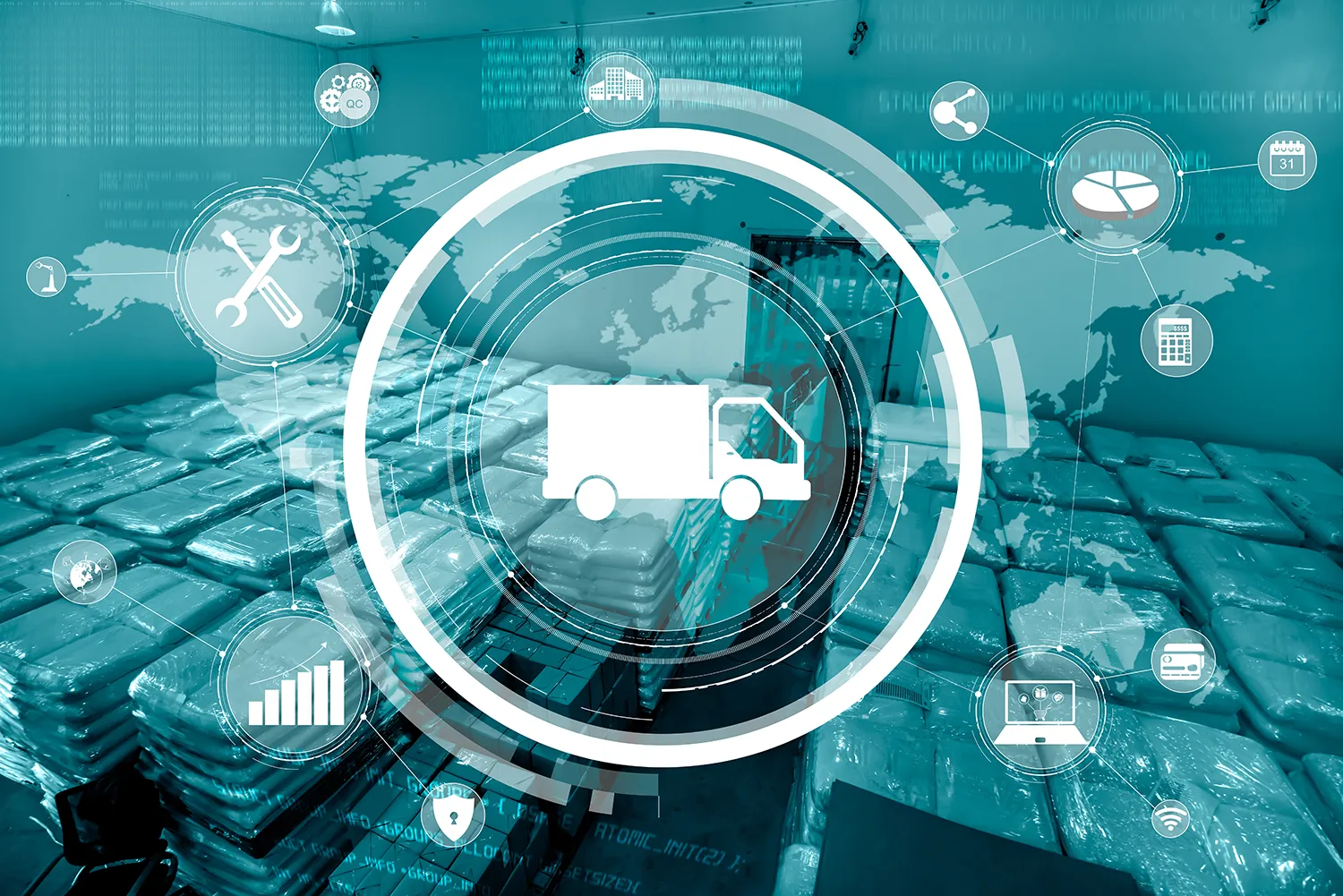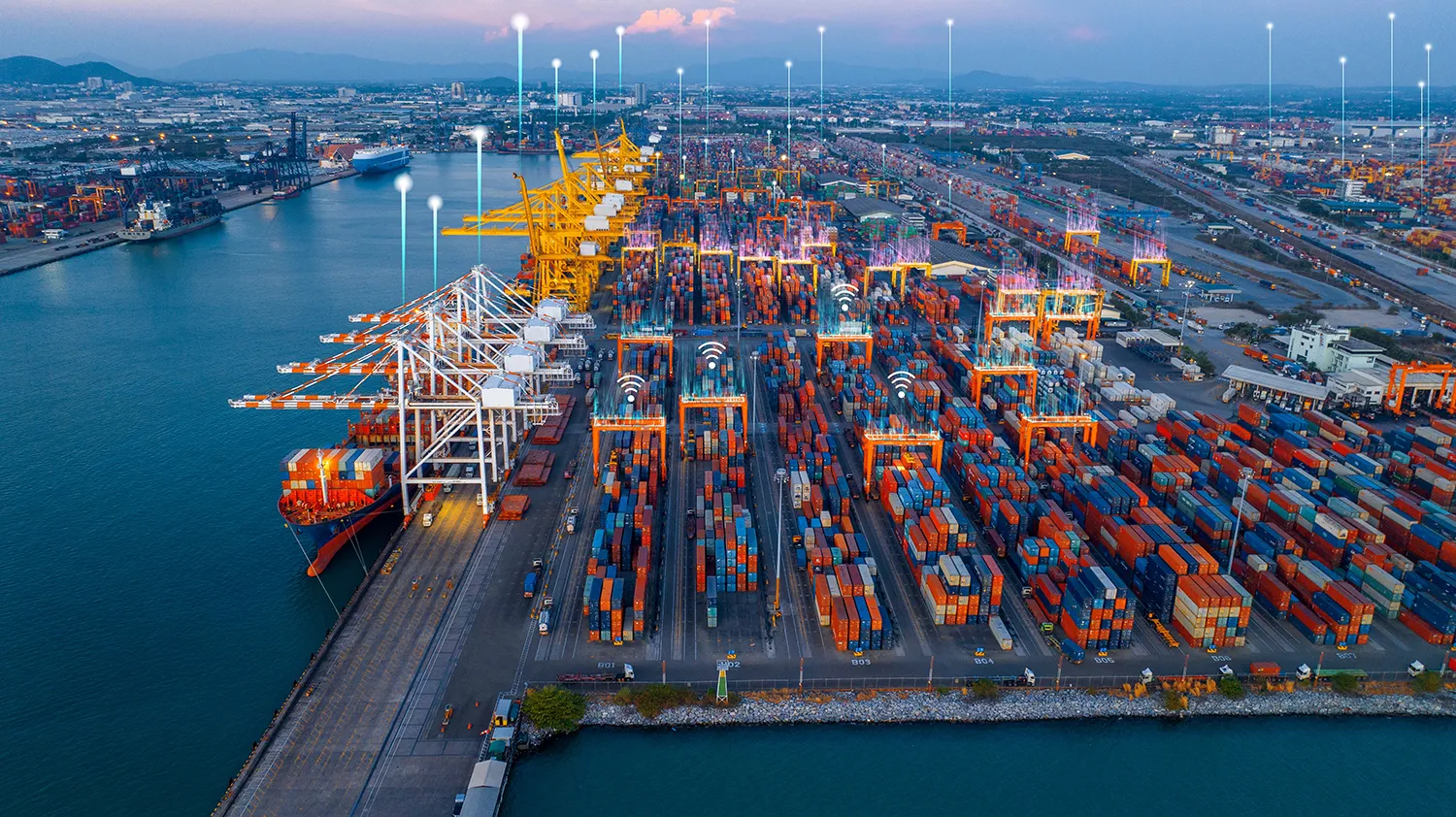Logistics Robots of “Lyubimy Kray”

Russian holding Lyubimy Kray has unveiled an ambitious five-year digital transformation strategy for logistics—one of the country’s first attempts to build an integrated ecosystem powered by domestic technologies.
A Breakthrough at Ecosystem Scale
Lyubimy Kray, working in partnership with ITMO University, is combining artificial intelligence, digital twins, and warehouse and transport management systems into a single self-adjusting platform. Even at the pilot stage, the results are striking: demand forecasting accuracy reached 90%, delivery times were cut by 22%, operating costs dropped by 18%, and CO₂ emissions decreased by 15% through route optimization.
The strategy goes far beyond traditional automation, aiming to create an entirely new model of logistics management. At its core is the integration of digital twins of warehouses and vehicle fleets with WMS, TMS, and ERP systems, creating full transparency and a unified data environment. AI-driven algorithms reduce the risk of overstocking or shortages, while RFID tags and GPS trackers ensure end-to-end visibility across the supply chain.
The project’s significance extends beyond a single company. For the Russian economy, it demonstrates the ability to deliver world-class solutions built on domestic technologies. A 3% reduction in warehouse losses and stronger ESG performance through “green” routing confirm the impact of a holistic digitalization approach. With a forecasted payback period of 2.3 years and an expected economic effect of over 1.2 billion rubles by 2030, the initiative is both technologically advanced and financially viable.

Potential and Growth Horizons
The scalability of Lyubimy Kray’s platform gives it strong export potential, particularly in countries facing similar infrastructure challenges and climatic conditions, such as EAEU members and parts of Asia.
Domestically, the upside is even greater. Analysts project the Russian warehouse automation market could expand sevenfold by 2030, reaching 626.6 billion rubles. By 2025, business investment in warehouse automation is expected to hit 20 billion rubles. Adaptation of Lyubimy Kray’s technologies across machine building, agriculture, and food production could deliver a multiplier effect for the broader economy.
ITMO’s involvement anchors the project in research excellence, while opening the door to other universities and research centers to join in developing AI-driven logistics. This lays the foundation for an entire ecosystem of digital logistics innovation, supported by technical universities and research hubs nationwide.
Global Trends and Russia’s Response
Over the past five years, Russian logistics has consistently moved toward digitalization. WMS platforms and warehouse robotics are being rapidly adopted by large companies. According to research from SOLVO, Russia’s WMS market grew 10% in 2024 to 6.6 billion rubles. Labor shortages have also fueled warehouse automation, with warehouse job vacancies rising 56% and loader positions up 38% in the first quarter of 2024.
Automation via Robotic Process Automation (RPA) is already deployed in 47% of Russian logistics firms, and among the largest companies that figure is close to 100%, according to a study by IT-holding T1 and the Skolkovo Center of Expertise. Digital twins and IoT technologies are used by 67% of companies with revenues between 10 and 100 billion rubles, underscoring industry readiness for tech innovation.

Globally, the numbers are even more impressive. The warehouse automation market is projected to reach $90.7 billion by 2034 with a CAGR of 14.6%. Amazon now operates 750,000 robots across 185 fulfillment centers—almost one robot for every two human employees. Meanwhile, the digital twin market for logistics is growing at 25.7% annually.
Strategic Outlook
Lyubimy Kray’s initiative sets a new benchmark for Russian logistics by merging AI, IoT, and digital twins into a single integrated system.
Expansion into adjacent industries and new regions could encourage government-backed programs to support similar transformations. The Ministry of Industry and Trade has already announced plans to establish six international transport and logistics centers by 2030, creating opportunities for Russian tech exports.

Export opportunities across EAEU and Asian countries are particularly relevant as Russia pivots toward eastern markets. If successful, Lyubimy Kray’s project could act as a catalyst for building a domestic digital logistics ecosystem that competes with global leaders and positions Russia as a technology leader in a strategically vital sector.










































